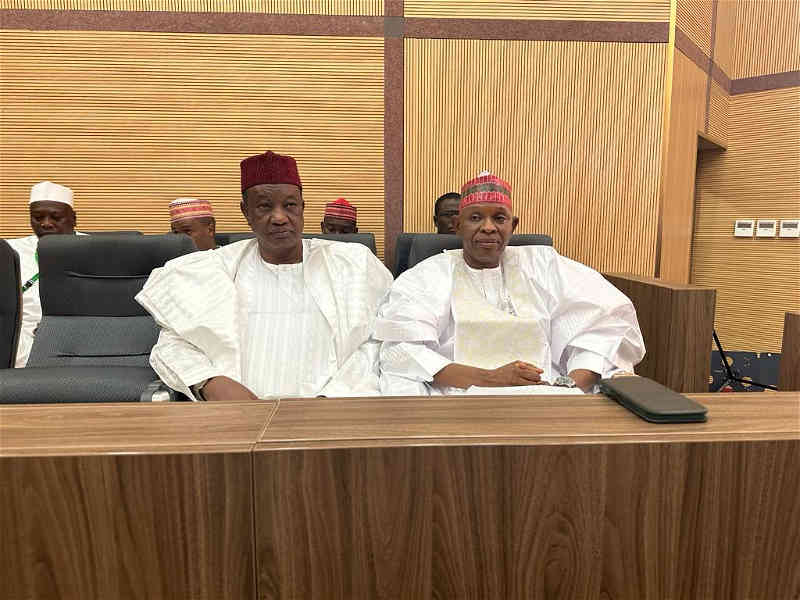Photos: Governor Muftwang, Yusuf, Mohammed, Others Arrive Court
In a significant development, the governors of Plateau, Bauchi, Kano, and Zamfara states have converged at the Supreme Court in the capital city, Abuja. The anticipation is palpable as the apex court is poised to deliver verdicts on governorship election disputes involving seven sitting governors elected in March and inaugurated on May 29, 2023.
Governors Abba Yusuf (Kano), Caleb Mutfwang (Plateau), Bala Mohammed (Bauchi), and Dauda Lawal (Zamfara) are currently seated in the courtroom, flanked by their legal representatives, awaiting the arrival of the justices of the Supreme Court who will pronounce judgments on these pivotal cases.
Read also: Security Tightens as Supreme Court Decides 8 Governors’ Fate
The atmosphere in the courtroom is charged with tension and curiosity, mirroring the significance of the decisions that will shape the political landscape. The governors, having completed their roles in the election process, now find themselves in the heart of legal scrutiny.
Former governor of Plateau State, Simon Lalong, adds another layer of intrigue to the proceedings as he is also present in the courtroom. His presence suggests a keen interest in the outcomes, possibly reflecting the broader implications these judgments may have on the political dynamics of the states involved.
The courtroom is brimming with lawyers, politicians, and spectators, all eagerly awaiting the arrival of the five-man panel of Justices. The decisions handed down by the Supreme Court will undoubtedly have far-reaching consequences, shaping the trajectory of governance in these states.


Read also: Nnamdi Kanu Parts Ways with Legal Team Following Supreme Court Setback
As the minutes tick by, the collective gaze remains fixed on the courtroom doors, awaiting the entry of the justices. The outcomes of these cases are poised to resonate beyond the confines of the courtroom, influencing the political landscape and public sentiment.
The unfolding drama at the Supreme Court is a testament to the enduring significance of the judiciary in shaping the course of democratic governance.

